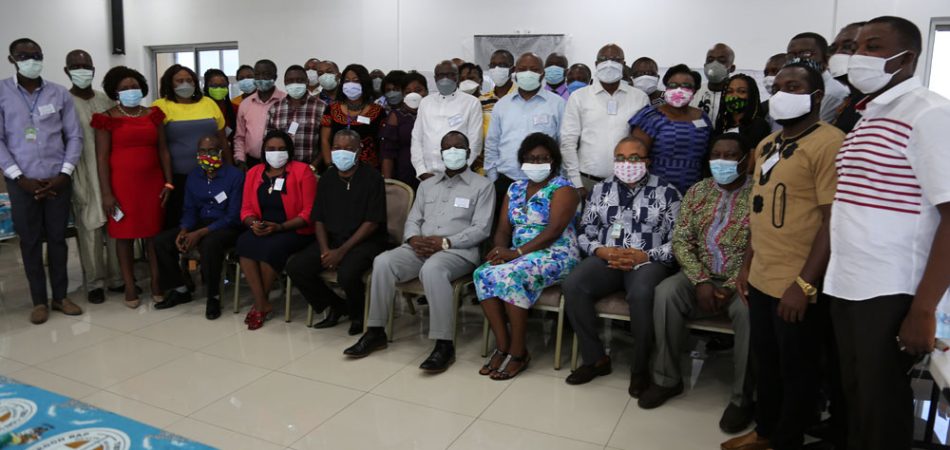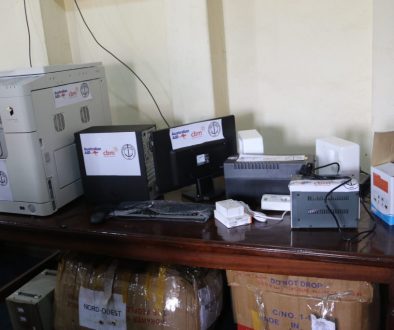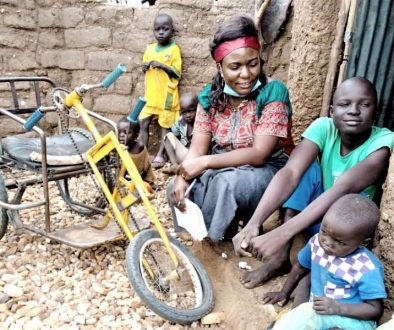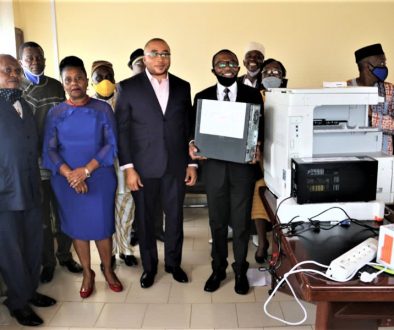CBCHS Leaders examine own-self to improve on Inclusion
Self evaluation is necessary for any individual or organization that intentionally needs to stay relevant. An outsider that sees the Cameroon Baptist Convention Health Services.
(CBCHS) as a glorified institution is, perhaps, blind to the fact that “Ye who wears the shoes knows where it pinches”. To stay above waters, the CBCHS is conscious that auto examination is key. This was the raison d’etre of a 3-day workshop that held from April 4-6, 2020 at the CBCHS Resource Center in Mvan-Yaounde.
The workshop that served as an auto critic moment of a system that is doing well but striving to do better, laid emphasis on Inclusion. Peter Mue Ngha, CBM Director for West and Central Africa and international trainer artfully opened up the minds of CBCHS hospital administrators, program managers and other leaders to identify gaps in their daily businesses with persons with disabilities (PWDs) vis-à-vis international conventions and the vision and mission of the CBCHS.
Mr. Mue used the CBCHS Mission Statement to drive home his presentations for the three days running. The mission states that the CBCHS shall provide compassionate health care to all who need it as an expression of Christian love. According to the CBM Regional Director, ‘all’ includes PWDs and if the CBCHS must stay relevant in contributing to the Sustainable Development Goals Number 3 on Health, which stresses on health and well-being for all, then issues of disabilities should concern every department and program of the Board and not limited to the Socio Economic Empowerment of Persons with Disabilities (SEEPD) program. Mr. Mue was assisted in facilitation by Mr. Awa Jacques Chirac, SEEPD Program Manager who made it clear that SEEPD is changing paradigm from service provision to providing technical support to stakeholders that should normally provide services to PWDs.
Stretching his argument, Mr. Mue said Contemporary Health lays emphasis on Universal Coverage and Universal Access, key among which are available services that should not place a financial burden on those accessing them. He challenged service providers to consider PWDs primarily as human beings made in the image of God who deserve equal opportunities and treatment like all others. He commended the authors of the CBCHS Mission statement many years ago when they embraced the concept of “All” but wondered aloud how inclusive are PWDs included in this lofty mission. “The devil lies in the details,” Mr. Mue remarked as a challenge to CBCHS leaders to review the way they do business with PWDs who need their services.
To help stakeholders relate well with PWDs, Mr. Mue said, there is no disability if there is no barrier on the way of someone with impairment. Thus, the key to eliminating disability is by taking off barriers paramount among which are: attitudes towards PWDs, awkward structural environments like buildings and walk ways, policy framework that do not favour all, economic situation limiting everyone from accessing services and absence of data and information to inform us if we’re actually meeting the needs of ‘all’.
According to the workshop trainer, these barriers can be minimized through medical intervention, acts of charity, social inclusion and respect for human rights. Mr. Mue defined human right as what you are due because of who you are and where you are. He observed that PWDs are part of human diversity and therefore deserve the same fair treatment.
“This workshop is an eye opener for me as a clinician,” Dr. Bakor, a participant observed. He acknowledged that the workshop has sufficiently informed him to change his approach to work with his (HIV) patients who include PWDs.
Another participant, Dr. Tumasang said the workshop challenged her many years of practice as a gynecologist. She marveled at the fact that the CBCHS Mission Statement crafted many years back has remained very relevant to this date. “We learn everyday,” the medic said with open hands.
Opening and closing the three-day workshop on Inclusive Health, Prof. Tih Pius Muffih, Director of CBC Health Services (DHS) called on the participants to give serious thought to the reflections on the three key things: Understanding Disability in your program context, what does disability inclusion mean to healthcare and why and how to change the narrative.



